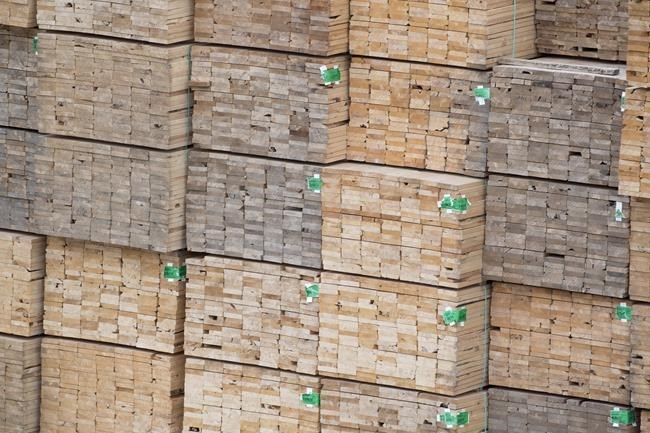The B.C. government has watered down some of its contentious forestry policies as it grapples with an economic crisis in the coastal forest sector, but the province still refuses to intervene in a five-month strike at Western Forests Products by members of the United Steelworkers.
Forests Minister Doug Donaldson said he has delayed by six months expanding the variable fee-in-lieu payment for raw log exports to all cutting permits on the coast, which was supposed to come into effect last week and financially penalize companies that want to ship logs overseas rather than process them in B.C. mills.
Donaldson also said he has shrunk the penalties and zones for wood-fibre recovery, another government policy intended to triple fees on companies that fail to bring out usable wood waste (such as broken trees) when they log in certain areas. That policy was supposed to incentivize companies to haul out more waste, which could be used by pulp mills and pellet plants.
An annual review of coastal stumpage — the fee companies pay to harvest timber on Crown land — has resulted in the rate dropping to $8.82 per cubic metre from $18.73 per cubic metre for existing cut permits starting Jan. 1, Donaldson said. He expanded on a looming aid package for forestry contractors, saying it will provide bridge financing for those who’ve had their equipment repossessed or are in imminent threat of foreclosure.
The concessions were intended to dampen some of the frustration and anger Donaldson faced when he met forestry workers in Port McNeill on Thursday and later at a town hall with North Island MLA Claire Trevena in Port Hardy.
More than 1,500 members of United Steelworkers Local 1-1937 have been on strike since July 1 at Western Forest Products operations on the mid to North Island. Another 1,500 forest-sector workers, including contractors, are caught in the middle and unable to work because of the labour dispute.
“I’m hearing a lot about the dire situation that many people are facing. Just the words they use are the collateral damage — the knock-on effects of the labour dispute — and how that’s impacting businesses and people that are working not necessarily forestry directly, but in grocery stores and other stores as well,” Donaldson said.
More than 150 workers and contractors met Donaldson and Trevena in Port Hardy. Outside the meeting, supporters handed out free turkeys to families struggle to get by through Christmas.
Inside, Port McNeill Chamber of Commerce executive director Jessica McLaughlin gave an emotional speech to the ministers about how the only coffee shop in the forestry town has laid off all its employees except one and the town is approaching a crisis point.
“She’s talked to people all over the place and they’ve said they are on the edge of losing their businesses,” said Port McNeill mayor Gaby Wickstrom.
“And she said: ‘Do not mistake my emotion for weakness, because I am pissed.’ That got a resounding applause.”
Donaldson and Trevena said they would take the comments back to Premier John Horgan.
“The general sentiment in the room that rose to the surface after everything, and this was directed to government, was that you have the power to do something,” Wickstrom said.
“We, the people in the room, don’t have the power, but you do to do something.”
The meeting concluded without any concrete action.
“I’m usually that person with the rose-coloured glasses in the corner looking for the sunshine and I’m not seeing any,” she said. “That’s tough.”
The WFP strike mainly centres on alternate shift scheduling that, the union says, forces members not to take consecutive days off and endangers their safety due to long hours and lack of sleep. The company has refused to give what it calls a “veto” to the union over the type of shift schedules that are economical.
WFP and some contractors have asked the government to intervene, but the Steelworkers Union (the NDP’s largest donor in the 2017 election campaign) has demanded government stay out of the dispute.
“It’s a private-sector dispute, not public sector,” said Steve Hunt, B.C. director of the Steelworkers. “When other parties get involved, often times it’s just another dynamic and it becomes a three-ringed circus.”
Negotiations restarted Monday under mediator Vince Ready, but soon collapsed.
The government has the power to call an industry inquiry commission to facilitate a deal, force a vote on the last offer on the table, or legislate a cooling-off period or contract. It has, so far, taken no action. Labour Minister Harry Bains met WFP on Wednesday and the Steelworkers on Thursday.



